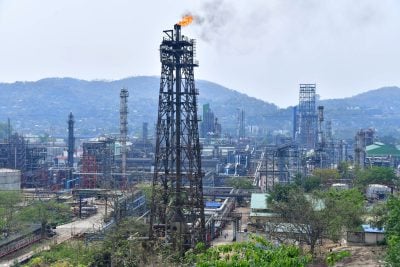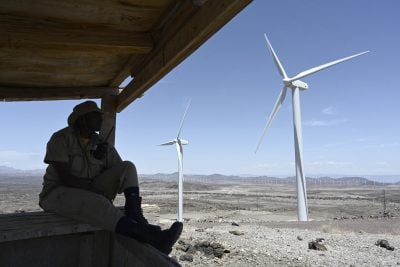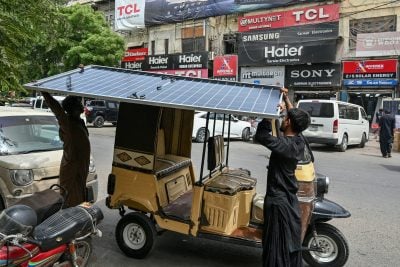As swine flu swept across the world in 2009, a small group of wealthy nations bought up vaccine stocks. Ultimately, it took a year for Africa to be supplied with vaccines, during which 345 Africans died. If its death rate had been anywhere near that of Covid-19, the fever would have claimed far more African lives.
It reflected the rise of “vaccine nationalism” and the continent’s struggle to acquire essential vaccines and medicines when health crises arise. As the far more serious Covid-19 pandemic rages, there are fears that Africa will again be overlooked when a vaccine becomes available.
To date, the virus has killed nearly 1.4m people worldwide, with over 32,000 victims in Africa, according to the WHO. Yet to vaccinate six in 10 Africans – what scientists believe is the minimum requirement for herd immunity – the continent will need about 1.5bn vaccine doses, as most vaccines require two.
Africa CDC, the African Union body coordinating the continent’s response, estimates the cost of the vaccine and delivery infrastructure at $7-10bn. Meanwhile, rich and middle income countries have already pre-purchased 3.8bn vaccine doses, according to research by Duke University.
“I am not confident. I am worried,” says Joachim Osur, technical director of programmes at Amref Health Africa, an NGO. “Rich countries seem to be scrambling to purchase available vaccines for their populations.”
There are currently four dozen potential Covid-19 vaccines in human trials worldwide, and 15 clinical trials are taking place in Africa, from South Africa and Egypt to Kenya and Guinea-Bissau. However, no vaccines, or doses, are being produced specifically for African patients.
A vaccine developed by Oxford University and AstraZeneca, which is thought to be between 70 and 90% effective but can be stored in a conventional vaccine fridge, will be available on a non-profit basis “in perpetuity” to developing world low- and middle-income countries. It is already part of Covax (see below).
Technology transfer
One major deal, between South African pharmaceutical firm Aspen Pharmacare and Johnson & Johnson (J&J), a major American corporation, is a partial solution. Although it does not promise to directly inoculate South Africans, it will provide technology transfer to Africa. With each home-made vaccine, the chance of Africans getting doses rises.
In November, Aspen agreed to make the Covid-19 vaccine candidate being developed by J&J at a factory in South Africa. Africa’s biggest drugmaker will produce 300m doses a year at its plant in Port Elizabeth, assuming the candidate, which is still in clinical trials, is approved. The vaccines will be available to the worldwide market.
“Johnson & Johnson’s public commitment has been really strong in terms of assisting developing countries,” said Stephen Saad, Aspen’s CEO in a release. “It’s good to get that manufacturing in South Africa.”
Aspen’s stock price surged 8.1% on the news. “The fact that we are involved in all these trials is really positive about our ability to manage,” said Saad. “We’ve got good clinical expertise. I think a lot of it is built up around some of the communicable diseases we’ve had such as HIV/AIDS.”
Technology transfers need to be completed before manufacturing can begin, which could take some time given that Aspen has never made vaccines before. This is the second contribution Aspen has made to fighting the coronavirus – it also produces the generic anti-inflammatory drug dexamethasone, a Covid-19 treatment.
This is the first such deal in Africa and the projected volumes are sufficient to enable exports around the region. “For Africa and lower-income countries, vaccine access is a big issue,” says Glenda Gray, president of the South African Medical Research Council. Of the Aspen deal, she says: “It’s a wonderful opportunity.”
“It is one way of technology transfer to Africa and increasing access to the vaccine when manufacturing starts,” says Osur. “More African countries should go for such partnerships.”
Africa’s history of disease and infection, including Ebola and HIV, will help in terms of infrastructure and community participation, experts say.
“The advantage that many African countries will have is they have experience of rolling out vaccination campaigns, whether it’s for measles, or cholera, because of the burden of disease that they have,” says Karsten Noko, a Zimbabwean human rights lawyer and humanitarian affairs officer for Doctors Without Borders. Indeed, three of South Africa’s major Covid-19 trials are using HIV research sites.
Securing affordable vaccines
Although it is a step in the right direction, by bringing vaccine know-how to the continent, the Aspen deal will not allay fears that Africa will be at the back of the queue for a vaccine. What is required is a coordinated pan-African approach to ensure all countries are prepared for the development, purchase, access and rollout of inoculations.
For now, the vast majority of African nations are depending on Covax, set up by the World Health Organisation, Gavi, a vaccine alliance, and the Coalition for Epidemic Preparedness Innovations. The ambitious project aims to pool state funds and donor money to secure enough affordable vaccines to allow participating countries, from all four corners of the globe, to immunise 20% of their populations – the elderly, infirm, nurses and medical staff.
Covax has secured 700m doses to date, but aims to procure 2bn by the end of 2021. The plan is that poorer countries, including dozens of African nations, will pay a subsidised price of up to $4 for a two-dose vaccine, with the difference covered by donors, philanthropists and the private sector. Middle-income African countries such as Botswana and Namibia have also penned deals with Covax, while South Africa has registered its intention to participate.
Experts say the plan will not go far enough. “Covax, which most Africans have hopes for, is like a drop in the ocean and will only vaccinate a small number of people,” said Osur.
While South Africa has been active, hosting five clinical trials for Covid-19 vaccines and signing deals, most African countries are lagging behind.
Many have not allocated funds for vaccines, or prepared communities to receive one. “Our distribution systems are weak and even if someone donates vaccines, it will be difficult to distribute them to all parts of Africa,” Osur says. The two most promising candidates, developed by US pharma giants Pfizer and Moderna, which both have a success rate exceeding 95%, must be transported at a costly and difficult -70C and -20C respectively.
Struggle to raise funds
African governments can take action now, be it allocating funds, partnering with research organisations to host clinical trials, engaging with communities to build positive attitudes and establishing strong, workable, distribution plans. They can also make efforts to discuss vaccine access at the global level, to prevent hoarding of vaccines.
But cash-strapped African governments may struggle to raise funds. “We are still dealing with the very dire economic consequences of the Covid pandemic,” says Noko. “Many people have lost their jobs and livelihoods, many countries have droughts, many are facing armed conflict, it’s a little bit of a stretch to set aside money for a vaccine when you have immediate needs.”
The deal between Aspen and J&J to shift technology to the continent and create homegrown vaccines in exportable quantities is an important first step. But given the vast number of vaccines that will be required to immunise a continent in which 2m have now been infected, there remains cause for grave concern.
Want to continue reading? Subscribe today.
You've read all your free articles for this month! Subscribe now to enjoy full access to our content.
Digital Monthly
£8.00 / month
Receive full unlimited access to our articles, opinions, podcasts and more.
Digital Yearly
£70.00 / year
Our best value offer - save £26 and gain access to all of our digital content for an entire year!

 Sign in with Google
Sign in with Google 





